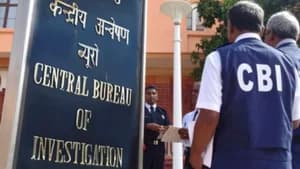In a significant ruling that touched on everyday policing and constitutional rights, the Bombay High Court’s Kolhapur bench on Tuesday set aside the preventive detention of Solapur resident Haridas Shankar Gaikwad, observing that the police had failed to apply their mind before jailing him under the Maharashtra Prevention of Dangerous Activities Act (MPDA). The hearing, which saw sharp exchanges at times, ended with the bench leaning strongly on recent Supreme Court guidance.
Read also: Supreme Court Warns of Exploding Drug Crisis Among India’s Youth While Overturning Bail in
Background
Gaikwad, 52, was detained in April 2025 for allegedly running an illegal LPG refilling operation-essentially transferring domestic cooking gas into auto-rickshaws for profit. Police officers claimed this endangered public safety and disrupted essential supply chains.
While the allegations were not new-two criminal cases had been registered since 2023-the turning point came when the police decided to bypass regular prosecution and instead invoke MPDA, a harsh preventive detention law meant for habitual offenders who pose a threat to public order.
Interestingly, Gaikwad had already secured bail in the most recent case. That bail order, passed on 7 March 2025, imposed strict conditions: weekly reporting to the police station, no repeat offences, and clear warnings that any violation would lead to cancellation of bail. Yet, barely five weeks later, the Commissioner of Police issued a detention order sending him to Yerwada Central Prison.
Read also: Patna High Court Grants Anticipatory Bail To YouTuber Manish Kashyap Amid Allegations Of
Court’s Observations
Throughout the hearing, the judges repeatedly questioned whether the police had hurried into preventive detention without checking if the bail terms were sufficient to keep Gaikwad in check.
Justice M.S. Karnik, reading the bench’s order, noted that the Supreme Court had already made this clear earlier this year. “The bench observed, ‘When bail is granted with conditions, the detaining authority must examine whether those conditions are enough to prevent future offences.’”
The Court pointed out a crucial inconsistency: all four in-camera witness statements relied upon by the police were recorded before Gaikwad was released on bail. After his bail, there was not a single allegation of misconduct, nor any attempt by the police to seek cancellation of bail-an option the Supreme Court has repeatedly said should be the first step.
Justice Karnik remarked that preventive detention cannot be used casually, adding, “The State is not without remedy. If someone is truly a menace, they can always apply for cancellation of bail.”
The Court also cited the Supreme Court’s Joyi Kitty Joseph ruling, which strongly criticised preventive detention orders issued without examining bail conditions. The bench here echoed that sentiment, calling such omissions “fatal to the detention.”
Read also: Bombay High Court Refuses to Quash CBI IPO Scam Cases Against Broker Manoj Seksaria Despite SEBI
Decision
In the end, the judges concluded that the Solapur Commissioner of Police had failed to consider the bail conditions at all, and therefore the detention order could not survive judicial review.
Declaring the MPDA detention “illegal and bad in law,” the Court quashed it entirely and ordered, “The petitioner is directed to be set at liberty forthwith.”
The order ended the moment the Court announced the release direction.
Case Title: Haridas Shankar Gaikwad v. Commissioner of Police, Solapur & Ors.
Court: Bombay High Court, Kolhapur Bench
Coram: Justice M.S. Karnik & Justice Ajit B. Kadethankar
Date of Judgment: 11 November 2025















